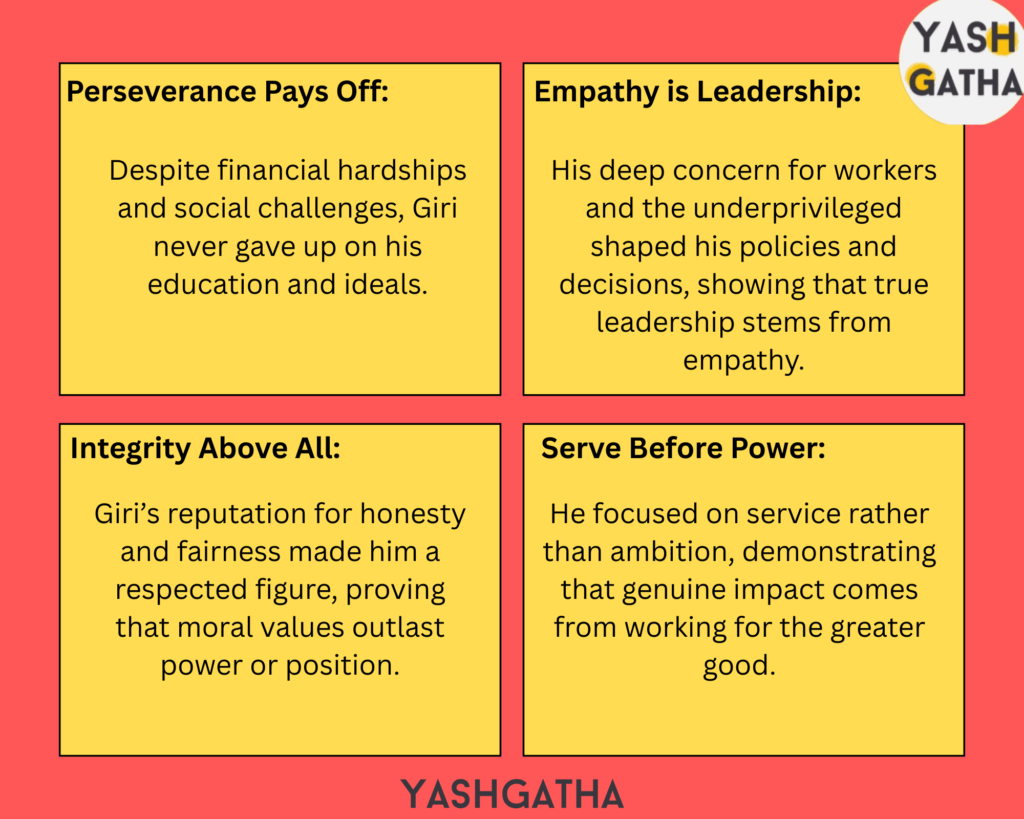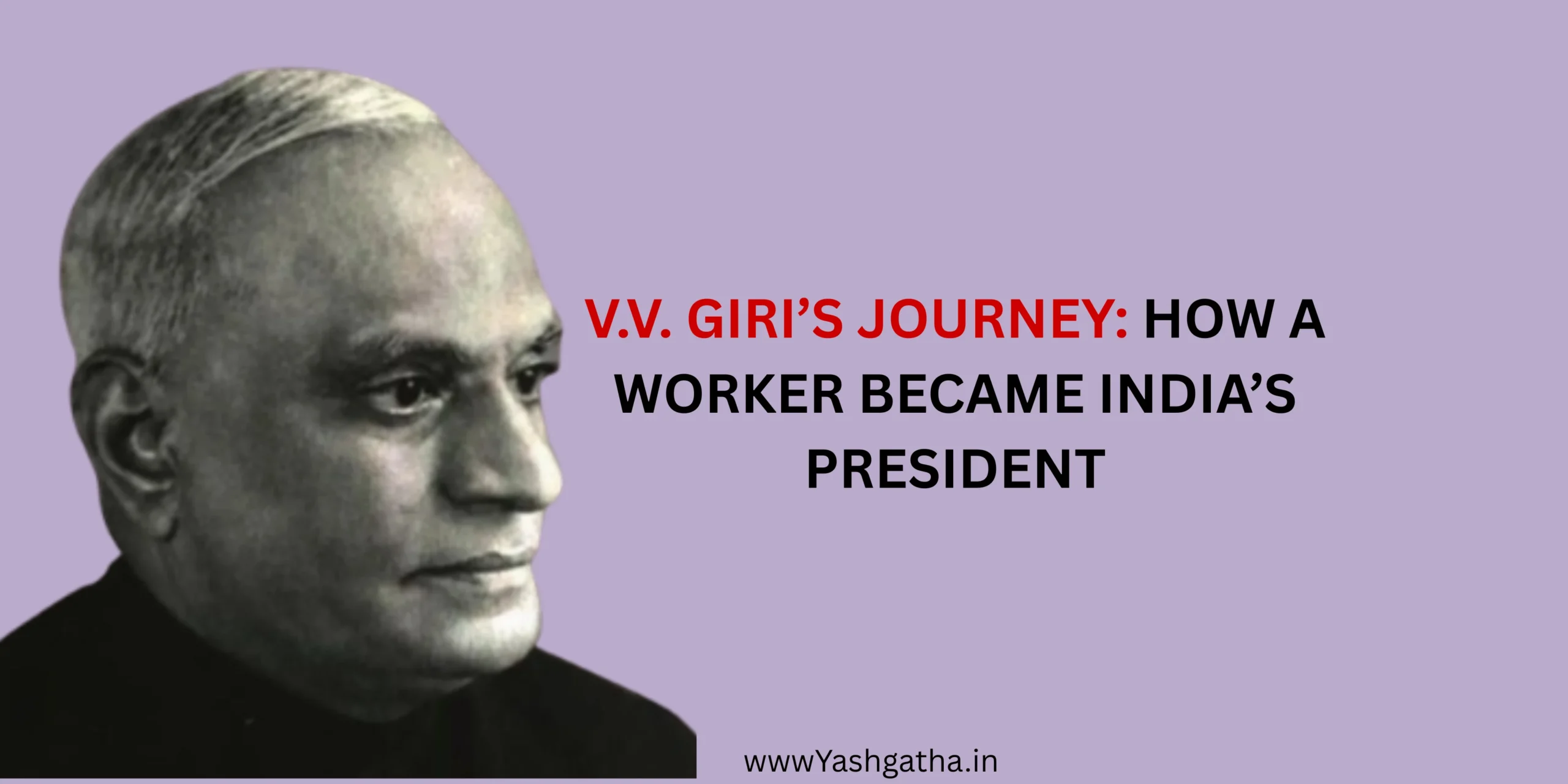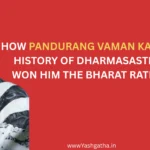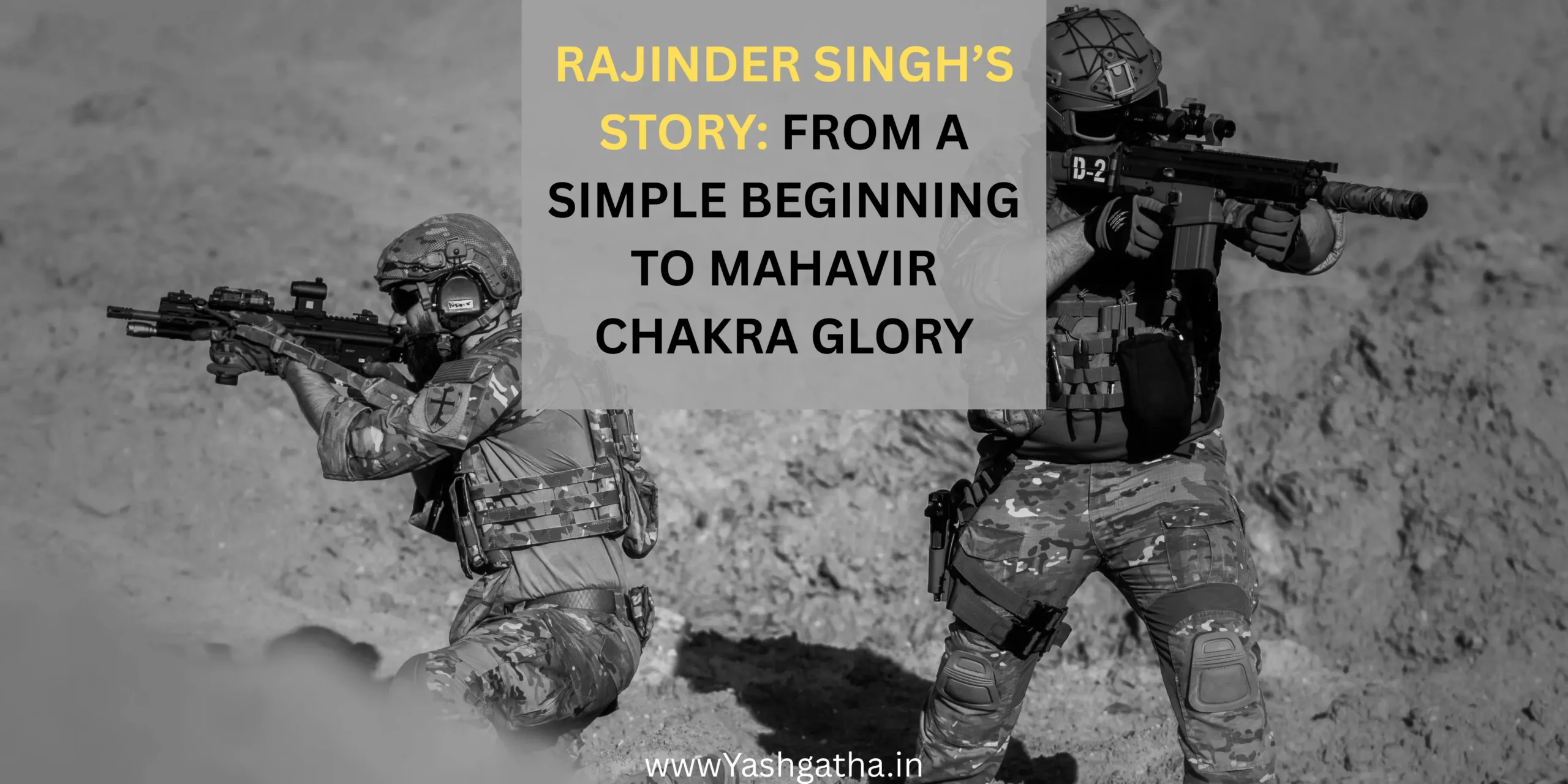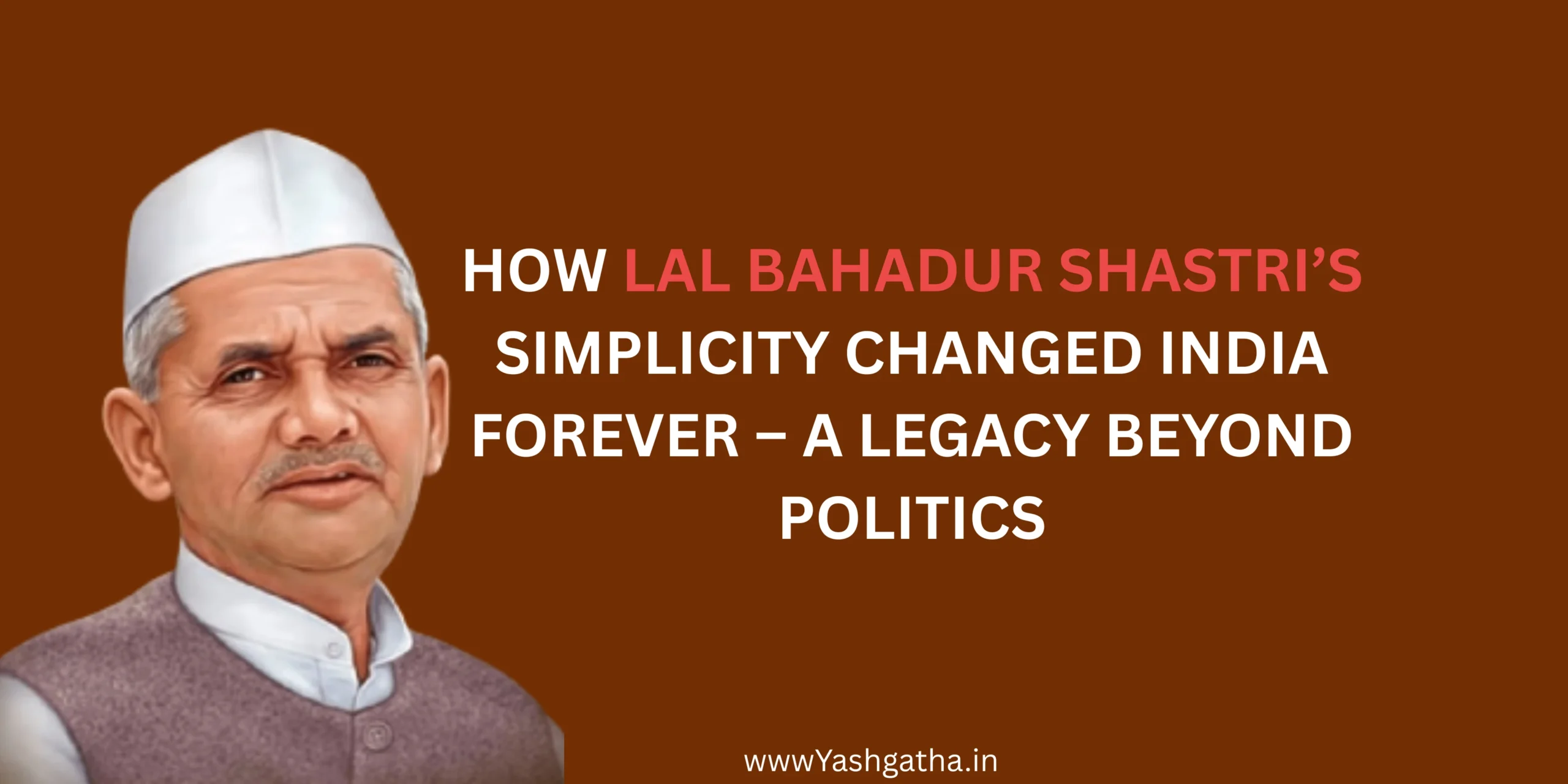Varahagiri Venkata Giri, born in Berhampur, Odisha, began his journey as a passionate labor leader advocating for workers’ rights and social justice, eventually rising through the ranks of Indian politics to become the fourth President of India and a Bharat Ratna awardee in 1975, leaving behind an inspiring legacy of integrity, dedication, and service to the nation that continues to motivate leaders and citizens alike.

V.V. Giri, India’s fourth President and Bharat Ratna awardee, rose from humble beginnings to become a national icon. A passionate labor leader and dedicated public servant, his journey is a story of courage, perseverance, and unwavering commitment to justice. From advocating workers’ rights to leading the nation, V.V. Giri’s life inspires generations to dream big and fight for what is right.
Early Life & Challenges :
Varahagiri Venkata Giri was born on August 10, 1894, in Berhampur, Odisha, into a modest family. From an early age, he displayed a strong sense of justice, empathy, and responsibility, traits that would define his future leadership.
Growing up, Giri faced financial difficulties that could have limited his education, but his determination to learn never wavered. He pursued his studies diligently, earning degrees in Arts and Law, while also nurturing a deep interest in social and political issues.
Inspired by Mahatma Gandhi and the Indian freedom movement, Giri actively joined the struggle for independence, focusing on workers’ rights and the welfare of the underprivileged. He started his career as a teacher and lawyer, which gave him insight into social inequalities and the struggles of ordinary citizens.
Despite facing resistance from colonial authorities, industrial leaders, and sometimes even his own peers, Giri remained steadfast in his commitment to justice, fairness, and the upliftment of laborers. These early challenges shaped him into a resilient, principled, and visionary leader, laying the foundation for his extraordinary journey from grassroots activism to the presidency of India.
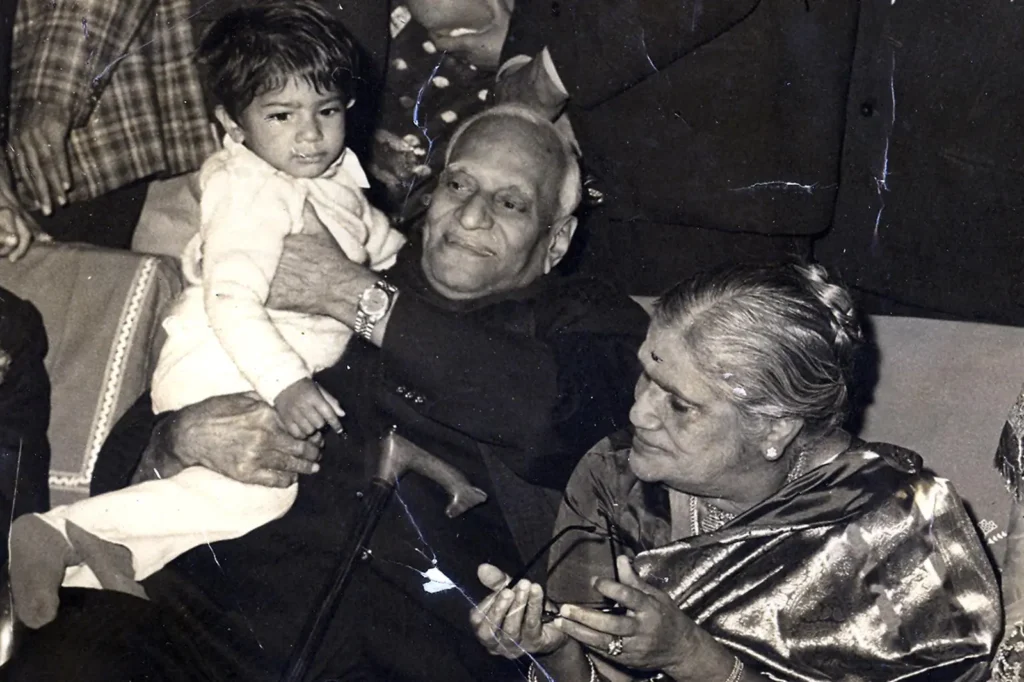
credit:wikipedia
Turning Point:
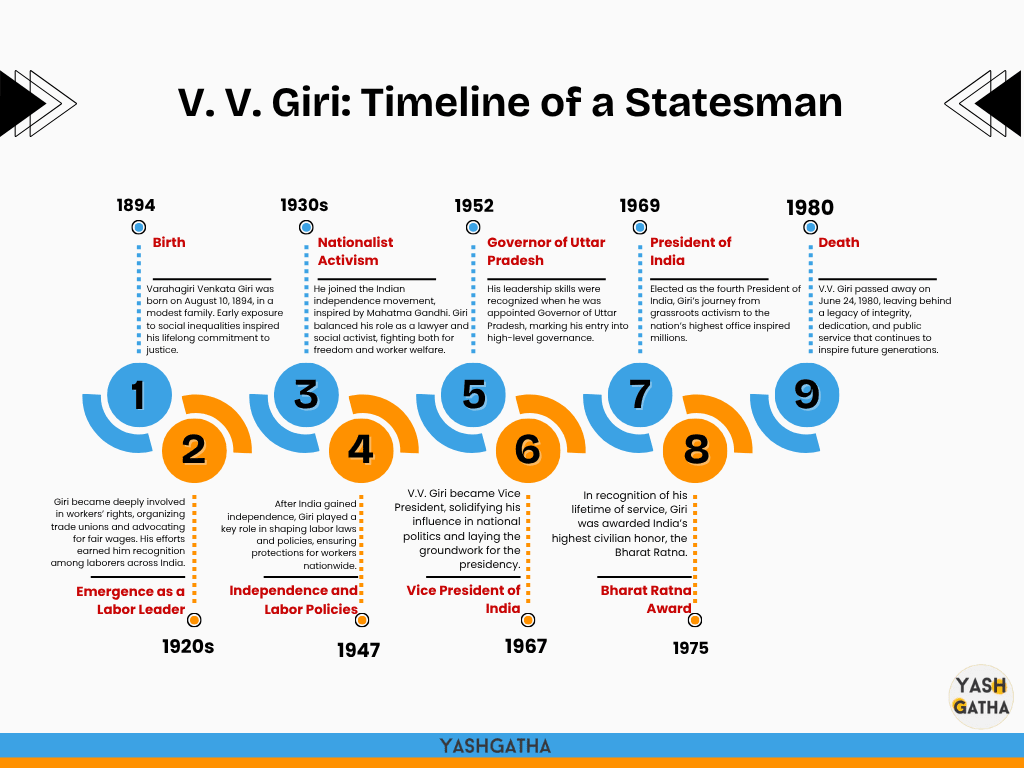
The Recognition & Award :
V.V. Giri, after decades of tireless work as a labor leader, freedom fighter, and politician, was awarded the Bharat Ratna in 1975, India’s highest civilian honor, in recognition of his exceptional contributions to the nation, his pioneering efforts in advancing workers’ rights, his visionary leadership as President, and his enduring commitment to justice, equality, and public service that continues to inspire generations of Indians.
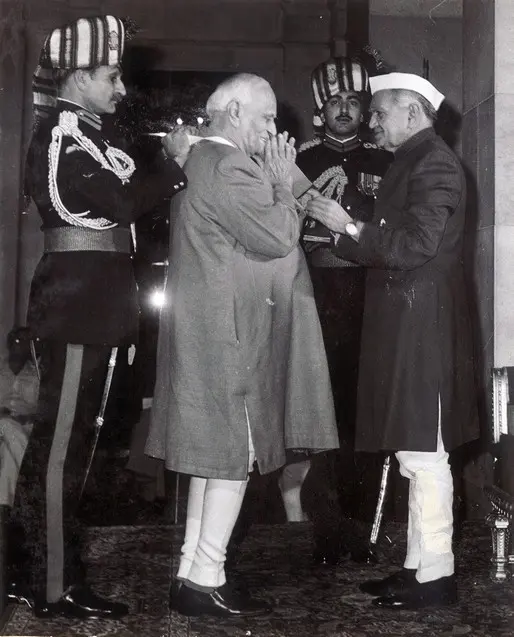
credit:wikipedia
What Changed After the Awards :
Receiving the Bharat Ratna in 1975 marked a significant milestone in V.V. Giri’s life, further elevating his influence and legacy. After the award, several key changes and developments occurred in his life and work:
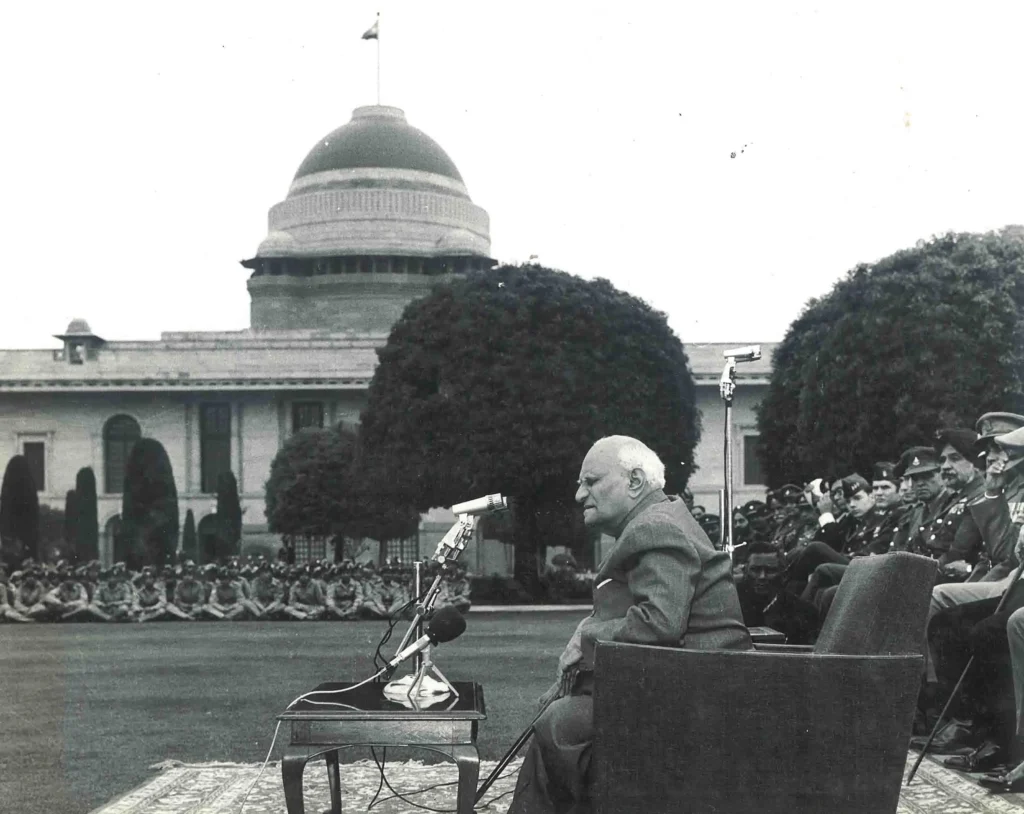
credit:wikipedia
- National Recognition: Giri became a widely respected figure across India, admired not only for his presidency but also for his lifelong dedication to labor rights and public service.
- Advocacy for Workers: He continued to champion labor welfare, influencing policy-making and promoting fair treatment for workers nationwide.
- Mentorship and Inspiration: His leadership inspired a new generation of politicians, social activists, and labor leaders who looked up to his integrity and vision.
- Public Engagement: Giri increased his participation in public speaking, conferences, and social initiatives, using his platform to advocate for justice and equality.
- Historical Legacy: His life and work became a reference point in books, documentaries, and speeches, cementing his status as a symbol of ethical leadership.
- Strengthened Reputation: The award enhanced his credibility and moral authority, making him a voice of wisdom and guidance in national matters even after his presidency.
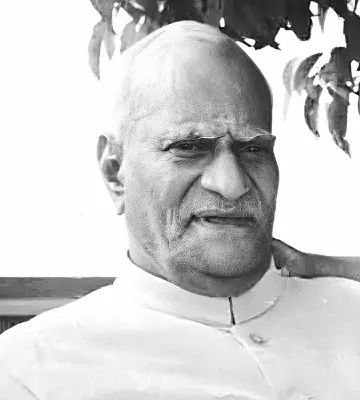
credit:wikipedia
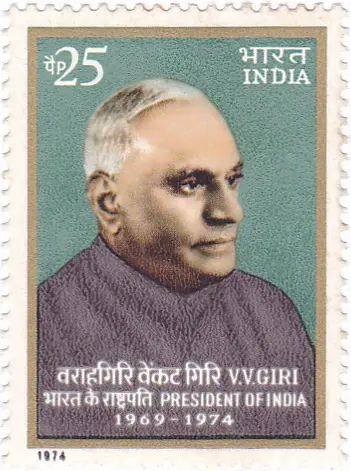
credit:wikipedia
Yashgatha Takeways:
